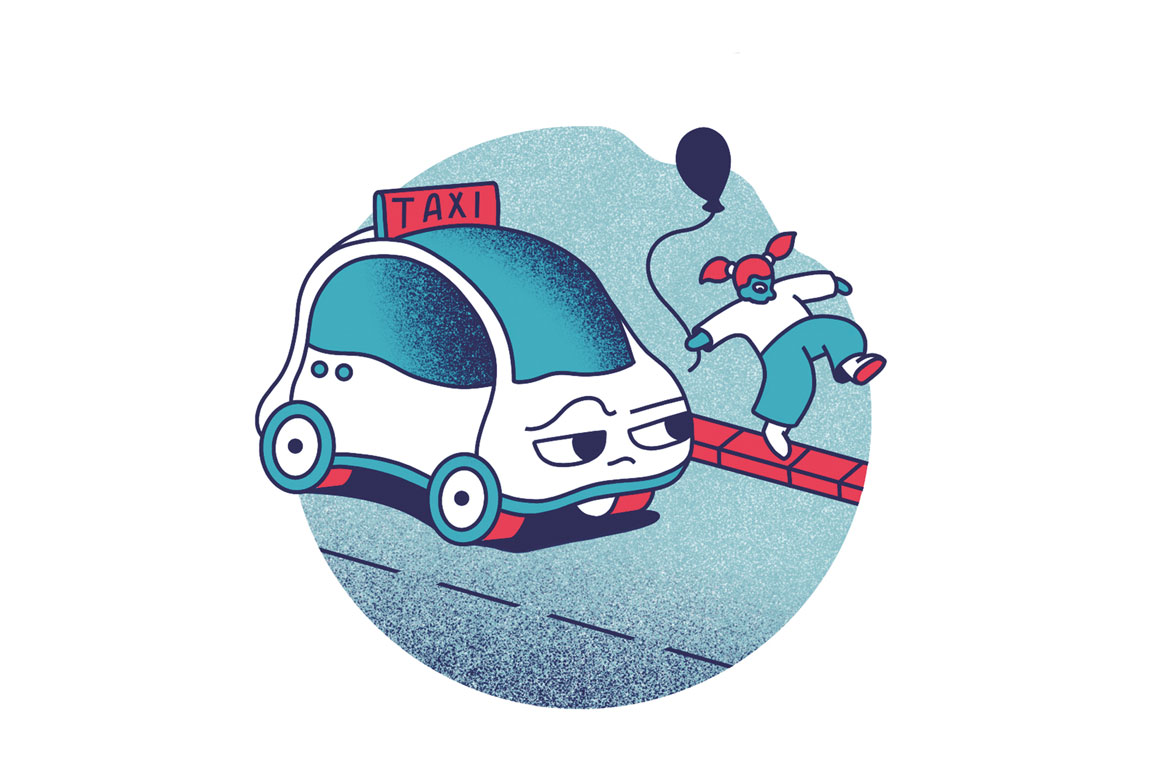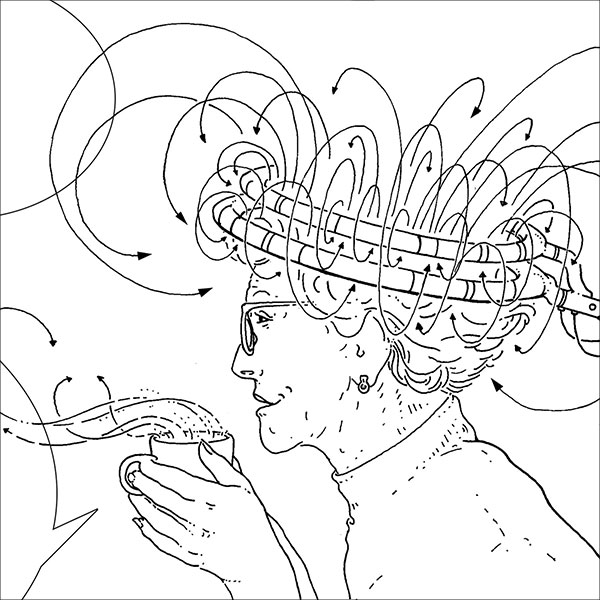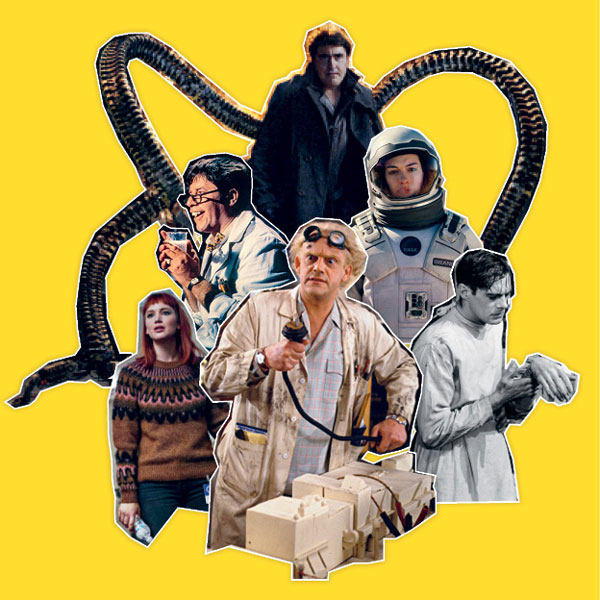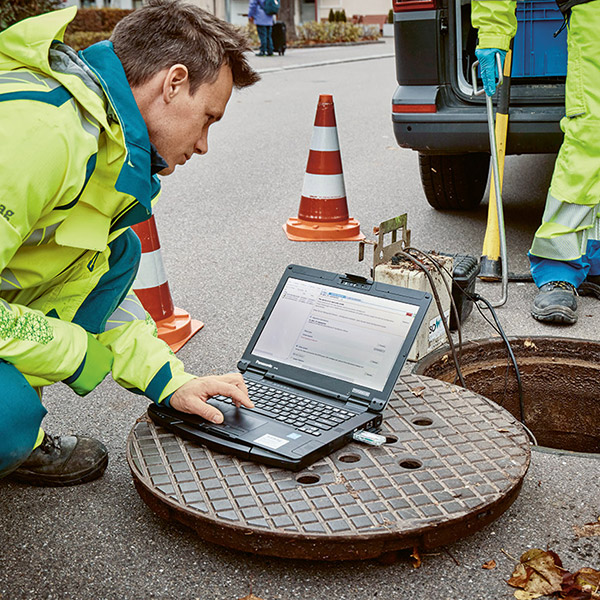Feature: The tourism of the future
Gadgets for near and far
Nifty digital gadgets will offer the tourists of the future more possibilities than ever before to enhance their experiences. We look at a small selection of them.

Adventure tours from your couch
For Jimmy Künzli, no activity can be exotic enough, whether it’s paragliding in Nepal or dog-sledding in Lapland. When he was stuck at home during the first Covid lockdown in 2020, he had a bright idea: What if you could experience the same giddy thrills from doing something within your own four walls? So he developed 15-minute-long, 3D videos that let you immerse yourself in foreign worlds. He wanted people to be able to explore a destination virtually before booking a trip to see it in person. “Then we also asked ourselves: Why shouldn’t we try and bring these experiences to people whose state of health prevents them from travelling at all?”
So Künzli and his partners created Weezy VR, an app that uses VR glasses to let you see the other side of the world from the comfort of your sofa at home. Weezy has already been taken up by several retirement homes. “What’s important is that virtual travelling gives you the feeling that you’re actually there – a sense of proximity”, adds Nicolas Leresche, who’s researching into immersion at the University of Geneva. This also applies to ‘on-site’ immersive experiences such as virtual tours of attractions like the Lascaux Caves that have been recreated near to the originals.

Taking Robotaxi to the city centre
Alexandre Alahi is working at EPFL’s VITA laboratory on an idea that could bring stress-free travel to all of us: the Robotaxi. If it comes to fruition, we’ll be able to order a driverless cab at the railway station that will take us along its own, extra lane into the city centre. But it will be a while before travellers round the world can hope to benefit from it. As with other autonomous vehicles, there are plenty of problems that just haven’t been solved yet. More than anything else, there’s the issue of the hectic traffic in city centres.
All the same, Alahi is convinced that the Robotaxi can work: “Self-driving robots must be able not just to recognise people, but also to anticipate their next steps. They need to be socially aware”, he says. He is working on developing just this kind of social intelligence in an AI in his lab. It will enable future robot taxis to make responsible decisions at crowded intersections. Driverless taxis are already being trialled in controlled environments, such as in Phoenix, USA.

Swiss-German for all
Nachem zBerg gha gits nüt bessers als es Panasch! If you’re a German-speaking alpinist, keen to tell your new French-speaking friends that there’s nothing better than drinking a beer shandy to celebrate climbing a mountain, there’s a new smartphone app to help. You speak into it, and it translates all you say into French. “Swiss German has no written form”, says Manfred Vogel from the University of Applied Sciences and Arts Northwestern Switzerland (FHNW).
“Then there are the different dialects of it that make it difficult to develop speech recognition apps”, he says. But in collaboration with the Zurich University of Applied Sciences (ZHAW), his research team has now developed a model for all Swiss German dialects. “A robust app needs some 2,000 hours of audio material, including transcriptions”. Vogel’s tool is based on two large data collections to which Swiss-German citizens contributed. They’ve also already achieved the artificial speech generation of Swiss-German dialects, and their app is now being trialled by the start-up Ateleris. Demo versions can be tested on the FHNW website.

Selling sustainability
‘Swisstainable’ offers a bottle-green stamp that has a retro-look about it, like something from the Alpine tourism scene of the turn of the 20th century. It’s intended to convey the fact that sustainability is now a top priority. According to Julianna Priskin from the Lucerne University of Applied Sciences and Arts (HSLU), it’s a good example of how clearly visible marketing can promote responsible tourism. “I often hear people say: ‘sustainability and marketing – that’s a contradiction in terms’. On the contrary, we need active, attractive marketing if we’re going to get travellers to notice sustainable offerings”.
She and her research partners are investigating how tourism businesses can place their offers on booking platforms successfully, and how they can come across as trustworthy. “Transparency creates trust”, says Priskin. “Travellers want to know what’s behind the three green leaves that designate the sustainability of hotels on the website booking.com”. If a hotel can inform website visitors clearly about, say, how many litres of water can be saved when showering, such strategies can be successful in encouraging people to book a room.




